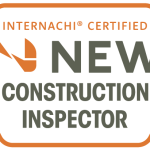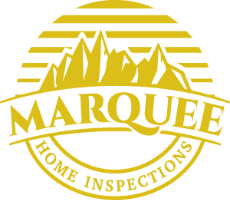If a house has a few years on it, the wisdom of getting a home inspection is pretty obvious. But what if you’re looking at brand-new construction? How necessary is an inspection then? As it turns out, foregoing an inspection could end up costing you a lot in the long run.
Why do new homes need to be inspected?
If a house was built using brand new materials, is up to current codes, and was approved by a building inspector, why bother hiring your own home inspector? One big reason is just that, they are your inspector and will be looking out for your best interests. Home buying can be stressful enough, having someone in your corner can be a big relief, and they can find some things that will save you major headaches later on.
Even with a great builder, the complexity of modern houses means that lots of people—often including subcontractors—are involved in the construction process. Not everyone brought in may have the same standards and even the best can make mistakes. In construction, even a small mistake could have serious repercussions.
Beyond the usual concerns, the boom in building often means time is tight and jobs might be rushed, or hard to oversee. Even materials themselves can be of a compromised quality, or substituted for less suitable materials or equipment when availability is a problem. That means, while individual jobs may have been done correctly, they might not work well together.
What about the code inspection? Remember, the building code is a pass/fail situation, and a minimum standard, not a graded result. A passing home, may have serious livability issues that quick inspection might overlook. Your home inspector is trained to spot these problems and takes time to document each issue.
An inspection might find issues it would take months, or even years to notice.
For example, issues in a foundation pour could lead to eventual cracking, or shifting, which could impact structural framing, showing in cracked drywall, sticking doors, and a host of other issues, but you may not notice those problems right away. An inspection can show them up, give you time to have the builder address the problems and save you a lot of headaches and money later on.
What is inspected?
Just as with an older home, the inspection is comprehensive, from the roof to the foundation. It includes:
- Interior and exterior walls
- Windows and doors
- HVAC (heating and air conditioning)
- Basement and crawlspace
- Fireplace/chimney
- Roof, attic and ventilation
- Plumbing
- Electrical
- Included appliances
Remember, just one faulty appliance, or poorly plumbed faucet could easily pay for the inspection itself. It’s also worth noting, we have yet to inspect a perfect new home, no matter how good it might look from the curbside.
When should you schedule your inspection?
You’ll want to schedule your inspection as late in the construction process as possible, so that any issues have a chance to manifest themselves. At the same time, make sure to allow enough time from closing so that any problems can be addressed and negotiated, if necessary.
Can you skip the inspection?
What if you’ve been involved in the building process from the start and you implicitly trust your builder? Well, getting your own inspection isn’t a sign of mistrust in your builder. They should be happy to stand by their work and, if issues are found, it’s easier for everyone to address them now, before you’ve moved in, rather than down the road. If you do decide to skip the inspection at the time of purchase, know that you can arrange one in the first twelve months, should issues arise. It’s also a good idea to make sure you have a warranty from your builder in case problems do appear.
Protect Your Peace of Mind
Buying any home can be a stressful and confusing time, be it brand new or pre-existing. Getting an inspection makes sure you have one less thing to worry about during the process. Don’t let an unnoticed issue ruin the enjoyment of your brand new home. Contact us today to schedule an inspection.





